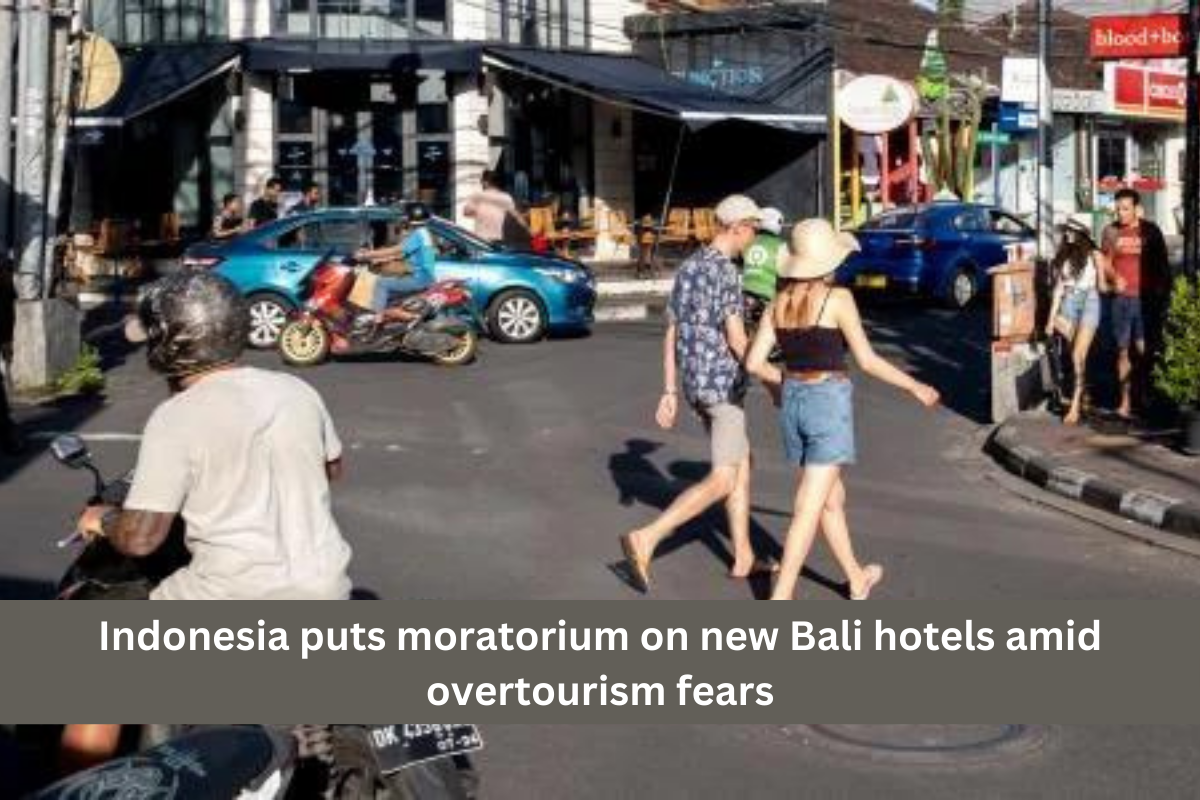Indonesia puts moratorium on new Bali hotels amid overtourism fears:- In light of concerns regarding the overdevelopment of one of the most well-known tourist sites in Indonesia, Indonesia has decided to put a halt to the construction of new hotels in some regions of Bali.
Indonesia puts moratorium on new Bali hotels amid overtourism fears
Following the Covid epidemic, tourism in Bali has experienced a resurgence; nonetheless, there is a rising worry regarding the impact that visitors are placing on the local infrastructure, the environment, and the culture. According to Hermin Esti, a senior official at the Coordinating Ministry of Maritime and Investment Affairs, the government has agreed to put an embargo on the construction of new hotels, villas, and nightclubs. Esti made this statement to Reuters.
Wading across the river with waders to go through trash at the barrier When the team was cleaning up Bali’s waterways, they were wading through nappies, and they said, “It makes your stomach turn.” Keep reading. Uncertainty exists regarding the duration of the moratorium. According to the news website Detik, senior minister Luhut Pandjaitan was quoted as saying that it might continue to be in existence for as long as ten years straight. While there were 507 hotels in Bali in 2019, there were 541 hotels in Bali in 2019.
ALSO SEE : Typhoon Yagi: more than 140 dead in Vietnam as flood waters threaten central Hanoi
The easing of pandemic restrictions has resulted in an increase in the number of foreign visitors arriving in Bali. According to Indonesia’s statistics bureau, there were 2.9 million foreign visitors who entered the island through Bali airport in the first half of this year when the limitations were lifted. On the other hand, this has resulted in a number of issues, such as an increase in traffic, construction, and anger directed toward tourists who are impolite.
Digital nomads, who frequently remain on the island for longer periods of time, have become a particularly popular demographic on the island. The Sacred Monkey Forest in Bali is the location where a group of tourists capture a picture of a monkey with its youngster.
Observe the image in its entirety.
A photograph of a monkey with its young is taken by a group of tourists in Bali’s Sacred Monkey Forest. The photograph was taken in the forest. The photograph that was supplied to Alamy was taken by Gabriela Lukacijewska. These films of foreigners acting inappropriately and conducting stunts on social media have gone viral on multiple occasions, which has caused outrage among Indonesians and locals both in Indonesia and outside.
There are a few examples of similar pranks, such as flashing on a motorcycle, stripping off and gatecrashing a dance performance at a temple, and standing naked at sacred grounds. There are approximately 200,000 foreigners living in Bali, according to Luhut, which authorities say has led to concerns about crime and greater competition for jobs. Luhut also says that this has led to increased competition for jobs.
As part of broader attempts to strike a balance between the economy and the local environment and culture, the government is undertaking an audit to reform tourism on the island. This audit is going to be conducted in order to reform tourism. In order to contribute to the preservation of Bali’s culture, a tourism tax of 150,000 rupiah, which is equivalent to $9, was implemented in February for visitors from other countries.
For the purpose of alleviating the island’s extremely congested highways, the authorities on the island are planning to construct a rail link that will connect the airport to important tourist attractions. A month ago, the Minister of Tourism, Sandiaga Uno, issued a warning that South Bali was on the verge of experiencing overtourism.
If we were to increase by ten percent, we might enter that territory. In comments that were reported by the national news agency Antara, he stated that we must avoid a situation similar to that which occurred in Barcelona, where tourists became public adversaries.











